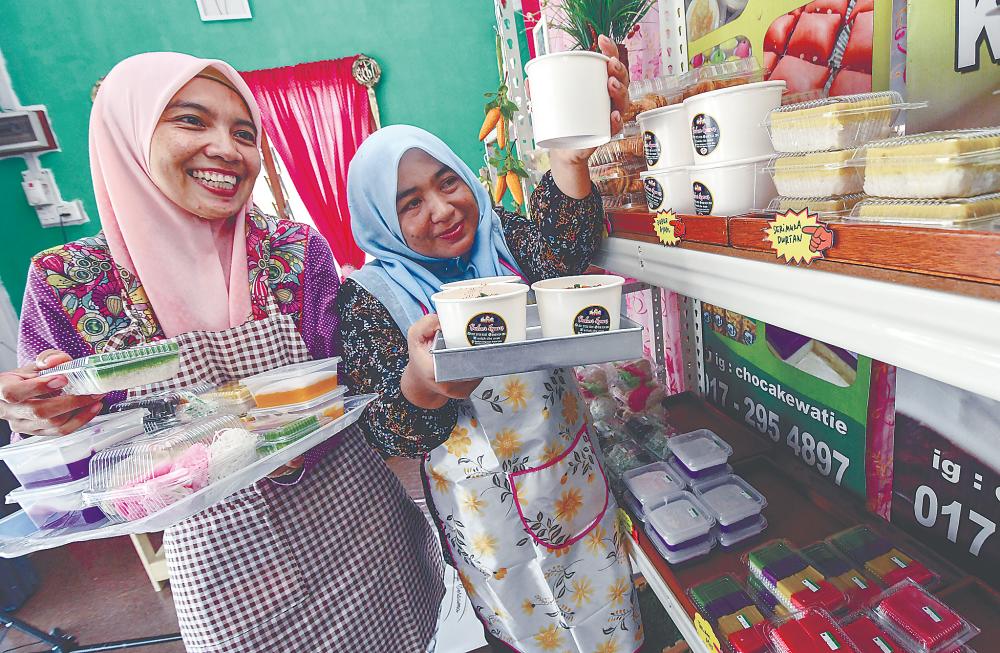PETALING JAYA: Malaysian women entrepreneurs are becoming a force to be reckoned with and are reshaping the business landscape with their growing presence driving sustainable economic growth and innovation, said an academic.
Universiti Malaysia Kelantan (UMK) entrepreneurship and business professor Datuk Dr Nik Maheran Nik Muhammad said while men continue to dominate large-scale enterprises and
high-growth sectors, women’s participation in entrepreneurship is rapidly increasing.
She said the shift is fuelled by digital opportunities, policy support and evolving societal norms.
“Micro, small, and medium enterprises (MSME) account for 96.9% of total business establishments in Malaysia, with women increasingly participating in the services sector, which comprises over 80% of MSME.”
Nik Maheran, who is also UMK Women Entrepreneurship and Leadership Linkages president, said surveys showed that Malaysian women have stronger business aspirations than the global average, with 80% expressing interest in entrepreneurship compared with 72% worldwide.
She said women reinvest up to 90% of their income into their families and communities, enhancing education, healthcare and overall social well-being.
“Empowering women entrepreneurs in Malaysia could unlock substantial untapped economic potential, contributing to GDP growth, especially since they are recognised for their meticulous and cautious approach to business planning, often prioritising long-term stability.”
Research also indicates that
their leadership approach translates into higher employee satisfaction, productivity and overall business performance.
“Balancing multiple roles, including running businesses and managing family responsibilities, equip Malaysian women with adaptability and resourcefulness. These traits, combined with strong problem-solving skills, enable them to creatively overcome obstacles and manage businesses effectively.”
Naira 9 Ventures founder Kavitha Thuraisingam, 38, transformed her passion for masala chai into a thriving tea enterprise during the Covid-19 pandemic.
Despite the loss of her husband to Covid-19 and the challenge of raising a young child, her resilience and commitment enabled her to expand her product line to premium blends like Organic Turmeric Green Tea and Naira’s Royal Tea.
“Balancing motherhood and business was overwhelming, but perseverance, family support and continuous learning helped me succeed,” she said.
Naira Ventures is today a testament to how passion and adaptability can lead to extraordinary achievements.
The Batik Craft founder Nor Azura Abdullah, 49, began her entrepreneurial journey in 2017 when she hand-crafted batik inspired soft toys while caring for her ailing husband and four children.
Despite challenges posed by the Covid-19 pandemic, she embraced digital platforms and virtual workshops, which helped her reach wider audiences.
“Support from Yayasan Hasanah and initiatives like the Ideas Project allowed me to uplift communities, preserve batik heritage, and train women artisans,” she said.
Her efforts won her accolades such as the Anugerah Wanita Ikon Kelantan 2024.
She also earned a master of entrepreneurship from UMK, with a CGPA of 3.93 at the age of 48, underscoring her perseverance and commitment to the community.
Nik Maheran said government initiatives and schemes like Tekun Nasional and the MySME Lady Financing Scheme offer women financial schemes with lower interest rates and friendlier repayment terms.
Global programmes, such as the SheTrades initiative by the International Trade Centre (ITC), have helped women gain access to global markets and financial resources.
The ITC works towards global prosperity by connecting small businesses in developing countries to international ones.
Nik Maheran said Amanah Ikhtiar Malaysia has also played a crucial role in uplifting women entrepreneurs by offering low-interest loans to rural women, enabling them to start small businesses.
“Digitalisation and social media have further boost women’s participation in entrepreneurship.
“Many of them lead informal businesses, especially in food and beverage, wellness and education sectors, which is why they are a force to be reckoned with in the business world today,” she said.









